No Results Found
The page you requested could not be found. Try refining your search, or use the navigation above to locate the post.
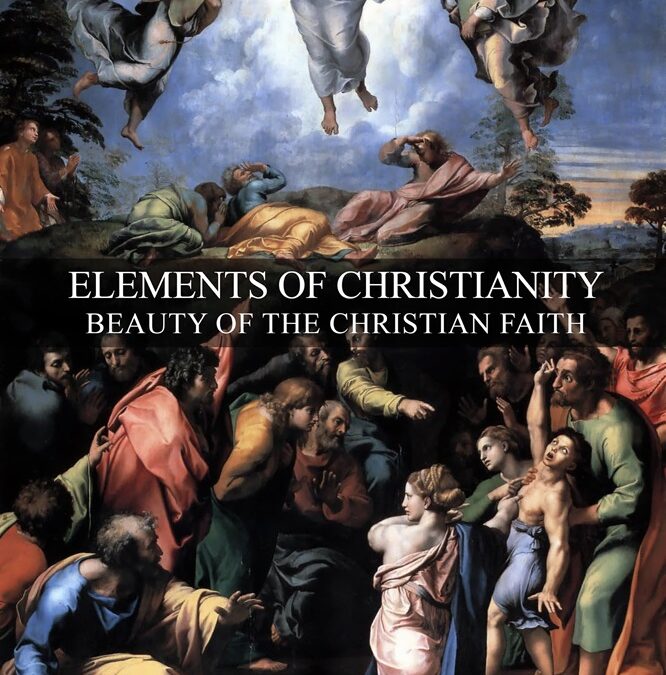
This book attempts to make accessible to the average reader the basic elements of Church teaching concerning morality, natural law, and supernatural truths that have been passed down through the Holy Scriptures and Tradition from the time of the Apostles from Jesus Christ himself.
Hardback: $39.95 | Paperback: $19.95 | Kindle: $9.99
“With his training in architecture and theology, Tonino Vicari demonstrates the beauty, wisdom, and logic of the Catholic faith in this compelling volume. Drawing upon Scripture, the Catechism of the Catholic Church, and outstanding works of art, Elements of Christianity makes an ideal textbook for higher level catechetical classes and adult education. In 1802 François-René de Chateaubriand published his Genius of Christianity as a response to the anti-clericalism of the French Enlightenment. In a similar way, Tonino Vicari has published a book on the beauty of the Catholic faith that responds to the secular culture of today.” – Robert Fastiggi, Ph.D. Professor of Dogmatic Theology, Sacred Heart Major Seminary, Detroit, Michigan
“Tonino Vicari has produced a handy compendium of our Catholic faith tradition, which will be of great help to students entering into their studies and a resource for those who teach them.” – Dr. Sebastian Mahfood, OP, author of The Narrative Spirituality of Dante’s Divine Comedy
 Tonino Vicari is a husband, father, author, and educator. He received his Master of Arts in Theology from Sacred Heart Major Seminary. He has been involved in teaching the Catholic Faith for the past 12 years. He lives in the Coachella Valley with his wife, and two children. His hobby includes fine art landscape photography.
Tonino Vicari is a husband, father, author, and educator. He received his Master of Arts in Theology from Sacred Heart Major Seminary. He has been involved in teaching the Catholic Faith for the past 12 years. He lives in the Coachella Valley with his wife, and two children. His hobby includes fine art landscape photography.
The page you requested could not be found. Try refining your search, or use the navigation above to locate the post.
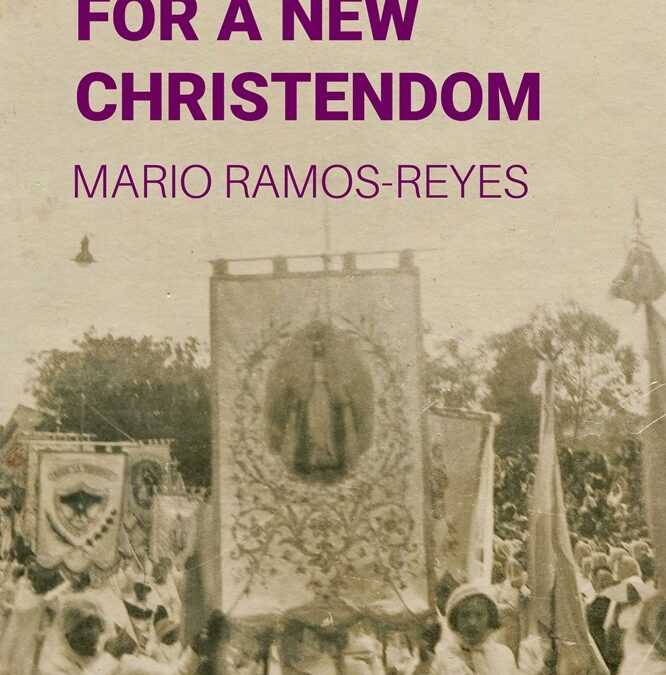

Hardback: $29.95 | Paperback: $24.95| Kindle: $9.99
“This important work by Mario Ramos-Reyes traces the influence of Jacques Maritain’s mature social and political philosophy in Latin America in the mid-twentieth century. Maritain’s Catholic philosophical foundation for a democratic pluralist society appealed to a generation of Latin American political and social thinkers who sought to build a democratic order in Latin America based on the dignity of the human person and Catholic social teaching. Ramos-Reyes expresses a hope that after the tragic eclipse of this vision, which was attacked from both the right and the left, this kind of democracy inspired by a Thomistic Catholic philosophy may come once again to be politically fruitful in Latin America and around the world.” – Dr. Lawrence Feingold, Professor of Theology and Philosophy, Kenrick-Glennon Seminary
“While everybody will not agree with the politics of this book, Latin Americanists should find the argument universally fascinating and enlightening because of its implications for the embeddedness of philosophy and religion (and philosophers and priests) in Latin American politics.” – Elizabeth Kuznesof, Professor and Director of the Center for Latin American Studies, University of Kansas
“Amid historical vicissitudes, Mario Ramos Reyes has sought the essentials of Maritain’s spirit: a Constitutional Democracy and the rule of law based on a Christian ethos. These still provide answers to this unmade world between postmodernism and woke ideologies and to this Latin America that, bleeding between socialist Christian utopias and its military-conservative reactions, has not yet found its path to institutional stability.” – Gabriel J. Zanotti, Professor, of UCEMA, and academic director of the Friedman-Hayek Center, and the Acton Institute, Buenos Aires, Argentina
“Ramos-Reyes is a tragic optimist. The eclipse of Christian Democracy is indisputable. Even its resurgence can seem little more than a nostalgic dream. And yet, to draw from Scripture, he asks whether these ‘dead bones can rise again.’ He tells us that if they do, it will be at the summons of a new generation of Latin American thinkers and activists.” – James Hanink, Past President, American Maritain Association
“In The Nostalgia for a New Christendom, Mario Ramos-Reyes has written a thoughtful analysis of the thought of Jacques Maritain and its influence on Latin America. He both analyzes skillfully the insights and the failures of the Christian Democratic movement that Maritain inspired and offers an impressive defense of the relevance of Maritain’s philosophy of human dignity for the twenty-first century.” – Carl Strikwerda, former president Elizabethtown College and former dean College of William and Mary
“I recall reading William Cavanaugh’s book, Torture and Eucharist, and his call for a more radical, supernatural, Eucharistic approach to politics and his criticism of Maritain as a proponent of the Christian Democratic vision that Cavanaugh thought had marginalized and neutered the Church. Then, liberation theology took up so much of the debate. Against that was a traditional conservatism that called for a Catholic country that did not make much room for liberalism in the best sense. Then, of course, the strong secularization brings with it the legalization of abortion and the rejection of the family. Yes, where have you gone, Jacques Maritain? Well, at least there is an answer to this: the writing of Mario Ramos Reyes.” – Daniel Philpott, University of Notre Dame
The page you requested could not be found. Try refining your search, or use the navigation above to locate the post.

After two years of anti-COVID-19 policies, an international group of Catholic scholars and lawyers gathered in Rome under the auspices of the International Catholic Jurists Forum to reflect on how society has handled the crisis in the fields of law, politics and religion. The purpose of the meeting was to highlight what needs to be done in the future to better safeguard subsidiarity, fundamental human rights, especially freedom of religion and conscience, expression, assembly and movement as well as democratic processes per se and the unity of family life. Scholars and jurists, authors of this book, discussed how the pandemic has affected the functioning of Western political systems, how it has changed our thinking about democracy, and how it has affected the life of the Church.
The publication of this book comes at a time when United Nations Member States are set to complete negotiations on the World Health Organization (WHO) Pandemic Treaty, and on the WHO International Health Regulations. Both documents raise a number of concerns related to the global biosecurity governance regime that is envisioned and the correlative limits on fundamental human rights that it entails. This book offers an examination of a number of related issues and concerns that reflect upon and bravely engage the evidence to offer clear thinking for scientists, politicians, and clergymen in light of faith and right reason with respect for the natural moral law and for religious believers, with assistance from divine revelation.
Paperback: $24.95 | Kindle: $9.99
“This conference was superbly conceived and really useful. Involving scholars and practitioners from many countries […] What was learned […] was not only what happened around the world between 2020 and 2022 but what should not be allowed to happen again.” – Iain Benson, professor of law, University of Notre Dame, School of Law, Sydney, Australia
“The closure of churches by governments during the COVID pandemic has taught us that we can no longer take for granted the precious freedom to practice our faith.” – Charles LiMandri, Esq., LiMandri & Jonna, LLP
“Many churches in the West failed their spiritual covid-test. They carried a high viral load of fear – fear of disease, fear of man, fear of death – and showed low levels of spiritual antibodies. The gospel of freedom from fear was rarely preached in a way that challenges secular powers or popular sentiment.” – Douglas Farrow, professor of theology and ethics, School of Religious Studies, McGill University, Montreal
“The essence of totalitarianism is when a government assumes complete control not only over the outward behavior of citizens but also over their inner lives, the way they think and evaluate the world.” – Rev. Piotr Mazurkiewicz, Professor of Political Science, Cardinal Stefan Wyszyński University, Warsaw, Poland
JANE F. ADOLPHE is a canon lawyer and a civil attorney (New York, Alberta); a professor of Law at Ave Maria School of Law (AMSL), in Naples, Florida; and an Adjunct Professor at the University of Notre Dame, School of Law, in Sydney, Australia. She has served as an external and internal legal advisor to the Papal Secretariat of State, Section for Relations with States.
FULVIO DI BLASI is an attorney (Italy), a legal mediator, and a Thomistic philosopher. He directs the Thomas International Center for Philosophical Studies (United States) and has taught at the University of Notre Dame (United States), the LUMSA Law School (Italy), the Pontifical University of the Holy Cross (Rome) and the John Paul II Catholic University of Lublin (Poland).
ROBERT L. FASTIGGI is a professor of dogmatic theology at Sacred Heart Major Seminary in Detroit, Michigan, where he has taught since 1999. He previously taught at St. Edward’s University in Austin, Texas (1985-1999). He is a coeditor of the English translation of the 43rd edition of Denzinger-Hünerman (2012) and a member of the Pontifical Marian Academy International.
IAIN T. BENSON is an attorney (Ontario, British Columbia), professor of Law at the University of Notre Dame Australia, Sydney, and extraordinary professor of law at the University of the Free State, Bloemfontain, South Africa. He has also served as a visiting professor in law at the University of Western Ontario, Canada (2014) and as a fellow of Massey College, University of Toronto (2015).
JOHN CARPAY is an attorney (Alberta) and president of the Justice Centre for Constitutional Freedoms, (https://www.jccf.ca/), which he founded in 2010 with the mission of defending the rights and freedoms of Canadians through litigation and education. He formerly served the Canadian Taxpayers Federation as Alberta Director from (2001-2005).
DOUGLAS FARROW is a professor of theology and ethics at McGill University, Montreal, Quebec. He previously taught in the United Kingdom at King’s College London, after completing his doctorate there under Colin Gunton.
CHRISTOPHER A. FERRARA is an attorney (United States) and civil rights litigator in cases involving the civil and constitutional rights of Catholics and other Christians. He successfully obtained an injunction against the COVID-related church closures imposed by California Governor Gavin Newsom and the “vaccine mandate” imposed by the ex-Governor of New York, Andrew Cuomo. He has authored many books and articles on subjects ranging from Catholic issues to quantum mechanics.
REV. PIOTR MAZURKIEWICZ is a Catholic priest (Archdiocese of Warsaw, Poland), and professor at the Cardinal Stefan Wyszyński University (Warsaw), where he directs the Institute of Political Science and holds the Chair of Social and Political Ethics in the Department of Historical and Social Studies. He serves the Polish Bishops’ Conference as an advisor and has served a three-year term (2008-2012) as the General Secretary of Bishop’s Conferences of the European Union (COMECE).
JANET E. SMITH is an author, speaker, and lecturer (find her online at https://janetsmith.org/), who retired from the Father McGivney Chair of Life Ethics at Sacred Heart Major Seminary in Detroit, Michigan. She has authored many books and articles on Humanae Vitae and has distributed more than two million copies of her talk, Contraception: Why Not, (now in its 3rd edition). She served three terms as a consultant to the Pontifical Council on the Family, and eight years on the Anglican Roman Catholic International Commission III.
GRÉGOR PUPPINCK is the director of the European Centre for Law and Justice. He has served as an expert representing the Holy See in committees of the Council of Europe, since 1999. He lectures on human rights, international law, and constitutional law at the law schools of the Universities of Mulhouse and Strasbourg (2003-2012). In 2016, he was an appointed member of the Panel of Experts on Freedom of Religion and Belief of the Organization for Security and Cooperation in Europe/Office for Democratic Institutions and Human Rights.
MICHAEL ARTHUR VACCA is an attorney (Michigan), and the director of ministry, bioethics, and membership experience for Christ Medicus Foundation (CMF) CURO. From 2010-2012, he served as a legal advisor for the Holy See’s Pontifical Council for the Family in Rome, Italy, where he advocated for the defense of human life, religious freedom, and the natural family on the international, regional, and national levels.
The page you requested could not be found. Try refining your search, or use the navigation above to locate the post.
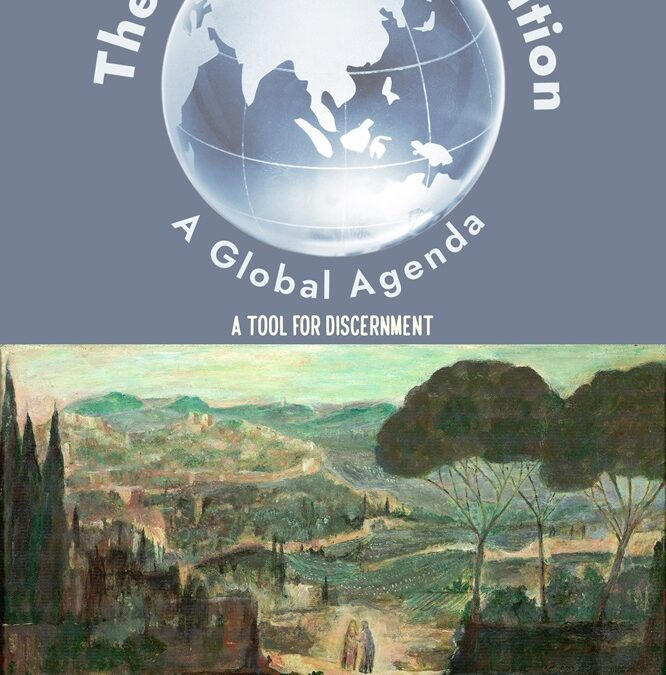
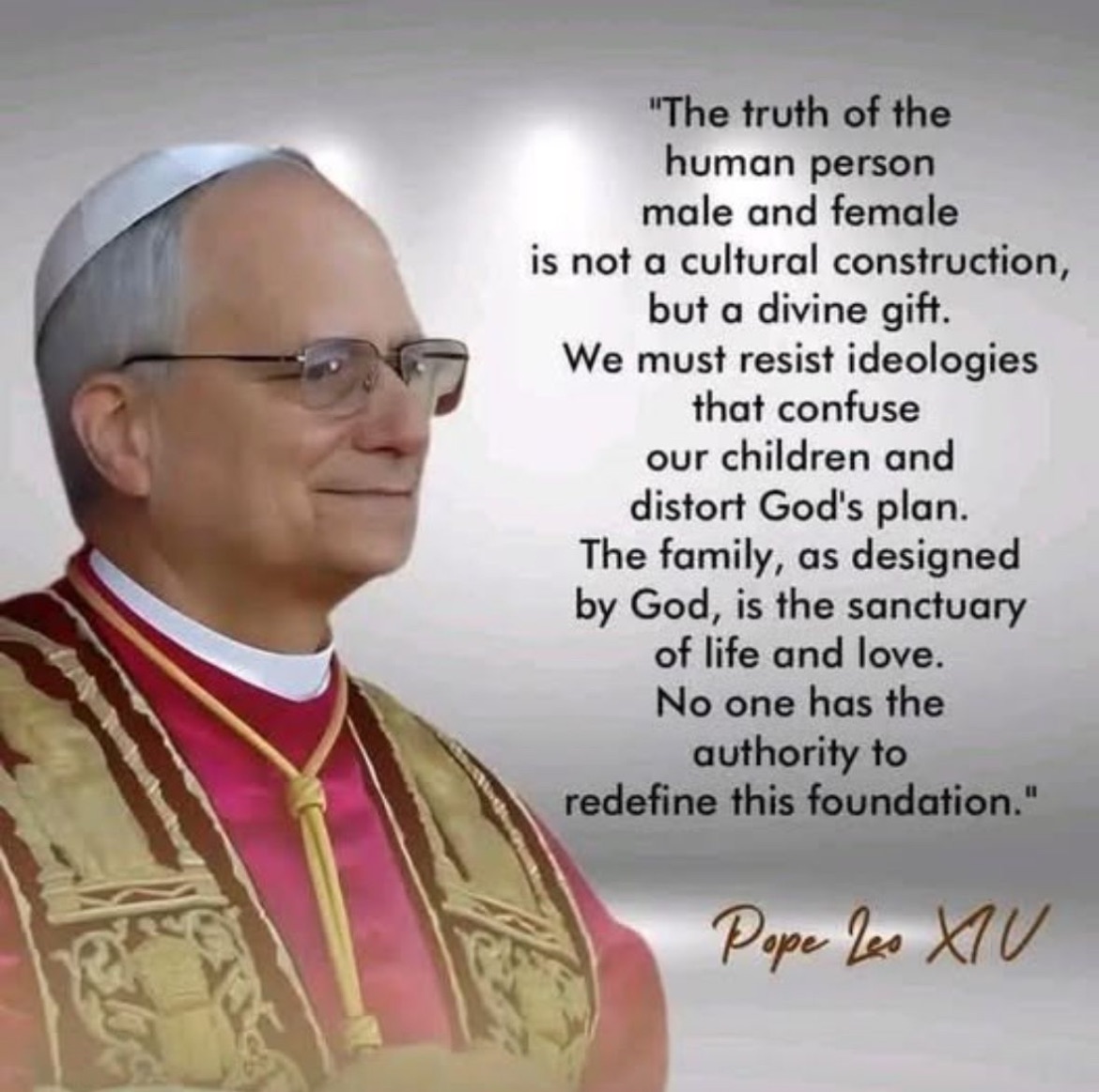
Wherever one lives in the world and whatever one’s age and occupation, it has today become difficult to escape the influence of the global political and cultural norm of “gender equality”. Each continent, each government, each people can observe sociological developments in its midst that are linked to the gender perspective, to gender. These developments cannot be “neutral” nor without consequences for their cultures, their identity, their future. This book seeks to expose the global agenda of the gender revolution and share with those caught up in it the fullness of divine life.
Paperback: $14.95 | Kindle: $9.99
“Marguerite Peeters meets and extends the convictions and exhortations of John Henry Newman, who said that only men and women of faith who ‘profit by what every day and hour teaches us, as it flies’ can discern and apprehend the overwhelming presence of God in the world. … We recommend this book and very much hope that it will be widely read throughout Africa and that it will elicit honest dialogue worthy of the greatness and dignity of man, created in the image and likeness of God—Father, Son, and Holy Spirit.” —from the foreword, by Robert Cardinal Sarah, Prefect emeritus of the Congregation of Divine Worship and the Discipline of the Sacraments, Archbishop emeritus of Conakry (Guinea)
“As a revised understanding of one’s sexual identity increasingly becomes integrated into the fabric and social structure of society, this author does something quite remarkable. She brings stunning clarity to the confusing dissonance of the culture of gender ideology. The author demonstrates how the confusion regarding one’s sexual identity has resulted from an inversion of the objective and subjective understanding of the nature of a person’s sexuality, where the objective biological reality has become the servant to the subjective understanding of the masculine and feminine. Undaunted, the author identifies the true nature of problem, namely, gender ideology’s distorted understanding and biased misrepresentation of what it means to truly love, placing the love of self and right to choose over the primordial fullness of the relationship of mutual love between a man and woman.” —Joseph P. Michael, Th.D., author of Apologia Pro Sancta Maria: Mother of the Church, Mater Ecclesiae
“Marguerite Peeters accurately assesses our socio-political landscape concerning the assault upon both our philosophical and theological anthropologies. She provides the historical context and a future hope as rich as that of Tolkien’s Middle Earth where he describes Frodo’s experience with the Ring at the start of his quest–‘…with determination etched upon his face, Frodo stepped forward into the wasteland. . . . Desolation surrounded him, but within his heart burned a flame that would not be extinguished—a light to defy the encroaching shadows.’ We, too, are living under the shadow of Sauron, yet, like Frodo, move forward with the kind of hope that we know will prevail. Peeters offers within the pages of this book, in true Petrine style, a reason for that hope.” —Dr. Sebastian Mahfood, OP, co-author with Ronda Chervin of Catholic Realism: A Framework for the Refutation of Atheism and the Evangelization of Atheists
 Marguerite A. Peeters directs Dialogue Dynamics, a Brussels-based institute specializing in the analysis of political and cultural developments at the level of global governance. She has authored several books on the globalization of the Western cultural revolution, the gender revolution and postmodernity.
Marguerite A. Peeters directs Dialogue Dynamics, a Brussels-based institute specializing in the analysis of political and cultural developments at the level of global governance. She has authored several books on the globalization of the Western cultural revolution, the gender revolution and postmodernity.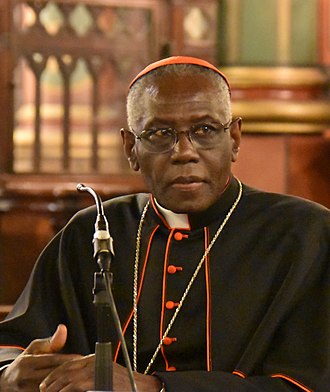 Robert Cardinal Sarah is a Guinean prelate of the Catholic Church. A cardinal since 20 November 2010, he was prefect of the Congregation for Divine Worship and the Discipline of the Sacraments from 23 November 2014 to 20 February 2021. Sarah previously served as secretary of the Congregation for the Evangelization of Peoples under Pope John Paul II and president of the Pontifical Council Cor Unum under Pope Benedict XVI.Sarah has been a vocal advocate for the defense of traditional Catholic teaching on questions of sexual morality and the right to life, and in denouncing Islamic radicalism. He has called gender ideology and the Islamic State of Iraq and the Levant (ISIS) the “two radicalizations” that threaten the family: the former through divorce, same-sex marriage, and abortion; the latter with child marriage, polygamy, and the subjugation of women. [from Wikipedia]
Robert Cardinal Sarah is a Guinean prelate of the Catholic Church. A cardinal since 20 November 2010, he was prefect of the Congregation for Divine Worship and the Discipline of the Sacraments from 23 November 2014 to 20 February 2021. Sarah previously served as secretary of the Congregation for the Evangelization of Peoples under Pope John Paul II and president of the Pontifical Council Cor Unum under Pope Benedict XVI.Sarah has been a vocal advocate for the defense of traditional Catholic teaching on questions of sexual morality and the right to life, and in denouncing Islamic radicalism. He has called gender ideology and the Islamic State of Iraq and the Levant (ISIS) the “two radicalizations” that threaten the family: the former through divorce, same-sex marriage, and abortion; the latter with child marriage, polygamy, and the subjugation of women. [from Wikipedia]The page you requested could not be found. Try refining your search, or use the navigation above to locate the post.
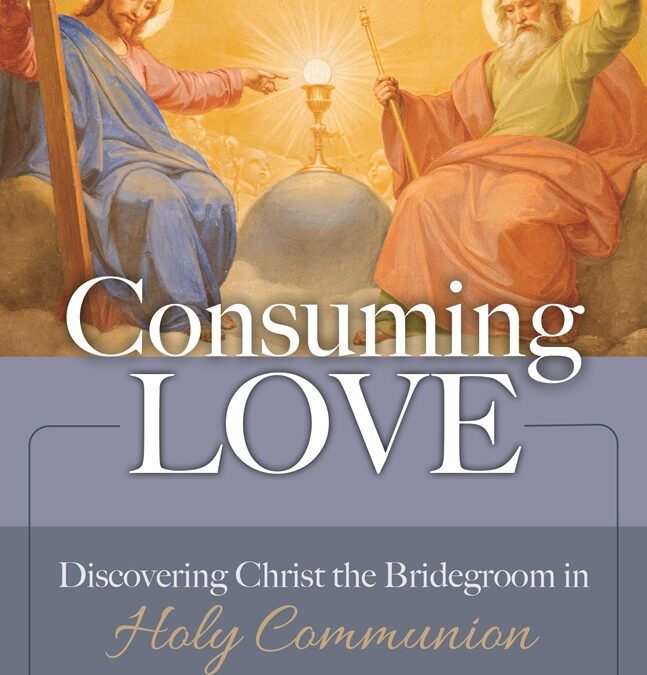
The Eucharist is the “sacrament of love.” Jesus Christ is the true Bridegroom of our hearts, and it is he whom we receive in holy Communion. Even if you have received our Lord thousands of times in the Eucharist, Consuming Love invites you to experience afresh the intensity of the intimacy Christ offers us. This book opens new horizons in our understanding of the Eucharist and offers a language of love to express our relationship with Jesus as a divine romance. Through his Incarnation, death, and Resurrection, Jesus Christ wedded human nature to himself, making a marvelous marriage of God and man. Jesus continues to make a marriage with his Church through the gift of himself to us in the Blessed Sacrament. We respond with consent to this union of Christ with our hearts as we receive him in holy Communion, giving ourselves completely to him in return.
Paperback: $14.95 | Kindle: $9.99
“As an author myself, I love a good title and subtitle for a book. Consuming Love: these two words together have a double meaning, both equally profound, which Father Cleveland unfolds with brilliant insight throughout: the love revealed in the Eucharist is not only “all consuming,” but in receiving the Eucharist, we have the privilege of literally consuming this all-consuming love. Oh, the intimacy to which we are invited at every Mass! The revelation of the Eucharist as “the sacrament of the Bridegroom and of the Bride” (St. John Paul II) is transformative – not only of one’s experience of the Mass, but of one’s entire life. Be not afraid of the journey of Discovering Christ the Bridegroom in Holy Communion on which this treasure of a book will lead you!” – Christopher West, Th.D., President, Theology of the Body Institute, author of Eating the Sunrise: Meditations of the Liturgy & Our Hunger for Beauty
“Feast on the words of this deeply Eucharist book. Rooted deeply in Scripture and the Liturgy, these beautiful reflections remind us that we are Christ’s beloved bride. As individuals and as the Church, we participate in the wedding banquet at each Mass. In adoration, we gaze in love at our bridegroom Jesus and He gazes back at us. Fr. Gregory Cleveland’s book invites us to enter more fully into relationship with the Lord and surrender to His love in the Eucharist and the other Sacraments. Fr. Cleveland teaches us how to participate more intensely in Mass, from the kiss at the altar to going forth as living tabernacles to joyfully sharing God’s love with others. Questions and prayer exercises at the end of each chapter make the book a wonderful companion for both personal meditation and group discussion.” – Lynda Rozell, author of Return to Me: Visits to the Tabernacle
Fr. Gregory Cleveland, OMV, was ordained a priest with the Oblates of the Virgin Mary in 1995. His first assignment was to St. Andrew’s Parish in Avenel, New Jersey, where he worked especially with the poor, disabled and imprisoned, completing an M.Div. in Theology and an M.A. in Spiritual Theology. He obtained certification in spiritual direction from the Center for Spiritual Development in New York City and returned to Boston to work seven years in seminary formation, as Rector and Novice Master. For seventeen years, Fr. Greg served as Executive Director of the Lanteri Center for Ignatian Spirituality in Denver, Colorado, where he offered spiritual guidance and retreats, as well as spiritual director training. He is currently a Retreat Master at Our Lady of Perpetual Help Retreat and Spirituality Center in Venice, Florida. Fr. Greg is the author of Awakening Love: an Ignatian Retreat with the Song of Songs (Pauline Books and Media, Boston, 2017), and Beholding Beauty: Mary and the Song of Songs, (Pauline Books and Media, Boston, 2020), both finalists for the Excellence in Publishing Award by the Association of Catholic Publishers, as well as Beloved Lover, Priesthood in the Song of Songs (En Route Books and Media, St. Louis, 2023).
The page you requested could not be found. Try refining your search, or use the navigation above to locate the post.
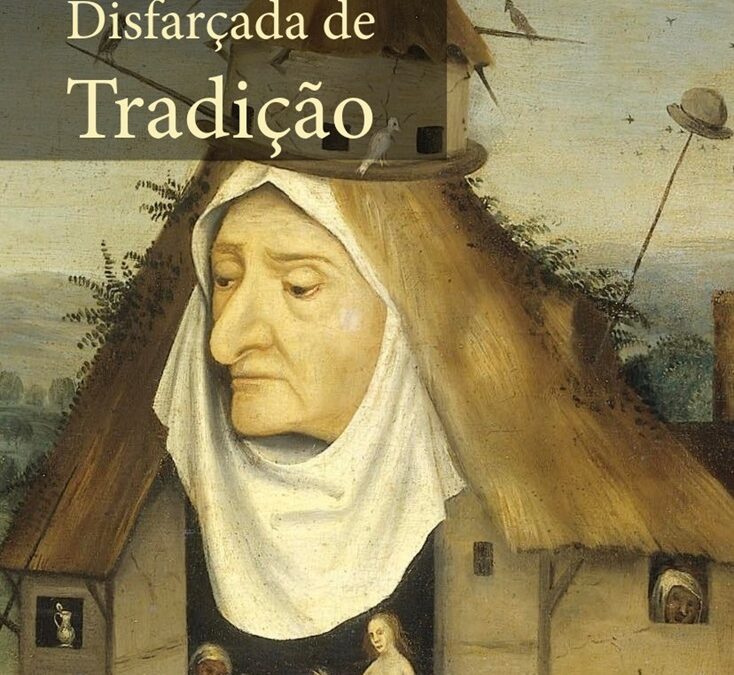
Livro de bolso: €22.99 | Kindle: €9.19
”Pedro Gabriel exibe as mesmas qualidades admiráveis encontradas nos seus outros escritos, ou seja, pesquisa cuidadosa, argumentação clara e refutações caridosas mas convincentes das falsas alegações feitas pelos críticos papais. Embora o Dr. Gabriel seja muito versado em teologia, ele é um médico … por formação e profissão. Em Heresia Disfarçada de Tradição, a sua formação médica é evidente. Ele é capaz de diagnosticar o cancro da falsa teologia disfarçada de tradição e expor as suas qualidades patológicas.” – Dr. Robert Fastiggi, Professor de Teologia Sistemática, Seminário Maior do Sagrado Coração, Detroit, Michigan
“Pedro Gabriel tem o dom de dar respostas transparentes e honestas a questões complexas. Agora, neste livro, ele explica o que é a Tradição Católica. Uma das pragas da atual discussão sobre o pontificado do Papa Francisco são os tradicionalistas que não conhecem a tradição da Igreja. Para propor a mesma verdade num contexto diferente, diante de uma cultura diferente e de desafios diferentes, não basta repetir as mesmas palavras. As palavras são sempre interpretadas num contexto. Parece que há apenas a escolha entre separarmo-nos da cultura em que vivemos para nos tornarmos homens da cultura em que a Tradição (que engloba a Escritura) foi originalmente formulada (mas então perdemos a capacidade de iluminar com as palavras da Escritura os dilemas do mundo de hoje) ou ler a Escritura à luz do Espírito do Nosso Tempo (mas então perdemos a capacidade de afirmar aquelas verdades que o nosso tempo não está disposto a aceitar e em vez de nos transformarmos segundo o Espírito de Jesus, transformamos Jesus segundo a nossa Mente). A resposta católica é que Deus instituiu, através do sacramento da Ordem e do Primado de Pedro, o contexto apropriado para a interpretação da sua Mensagem. Este contexto está ao mesmo tempo no tempo e fora do tempo. Sem a ajuda do Espírito Santo não pode haver Tradição, ou pelo menos não pode haver Tradição católica. É por isso que não é possível opor a Tradição católica ao Primado de Pedro. Simul stabunt, simul cadent (“juntos se erguem ou juntos caem”). O leitor encontrará respostas claras numa linguagem fácil de compreender e na qual transparece um amor fervoroso à Tradição e ao corpo de Cristo encarnado”. – Rocco Buttiglione, Membro da Pontifícia Academia das Ciências Sociais e da Pontifícia Academia de Santo Tomás.
“Pedro Gabriel conseguiu articular uma apaixonada defesa católica da verdadeira Tradição contra as suas deformações pseudo-tradicionalistas. Nada poderia ser mais oportuno para compreender – de uma vez por todas – que o Espírito Santo não foi de férias e assiste constantemente todos os sucessores de Pedro na condução e no governo da Igreja.” – Rodrigo Guerra Lopez, Secretário da Pontifícia Comissão para a América Latina.
“Pedro Gabriel oferece uma defesa bem escrita e profundamente pesquisada da doutrina católica em resposta aos erros do tradicionalismo católico contemporâneo. O Dr. Gabriel envolve-se diretamente com os argumentos dos tradicionalistas radicais e oferece uma resposta completa, não deixando pedra sobre pedra. O livro enfatiza as doutrinas da Igreja relativas ao papado, especialmente o papel crucial do papa na manutenção da unidade da Igreja e como garante da ortodoxia. Recomendo vivamente este livro a qualquer pessoa interessada em eclesiologia católica que queira compreender os debates em curso sobre autoridade e tradição na Igreja”. – Mike Lewis, cofundador e editor do website Where Peter Is.
“Este livro é uma lufada de ar fresco. O Dr. Gabriel escreveu um livro que falou diretamente a mim. Quando ele apresenta os seus argumentos, eu penso, sai da minha cabeça. Finalmente alguém reuniu um livro coeso que refuta a ideologia por detrás do tradicionalismo radical. Ele expõe na perfeição como esta ideologia coincide com a dos hereges do passado. Excelente trabalho, Dr. Gabriel! O seu trabalho é muito apreciado!” – Josh Anderson, revisor da Amazon, 5 estrelas!
The page you requested could not be found. Try refining your search, or use the navigation above to locate the post.